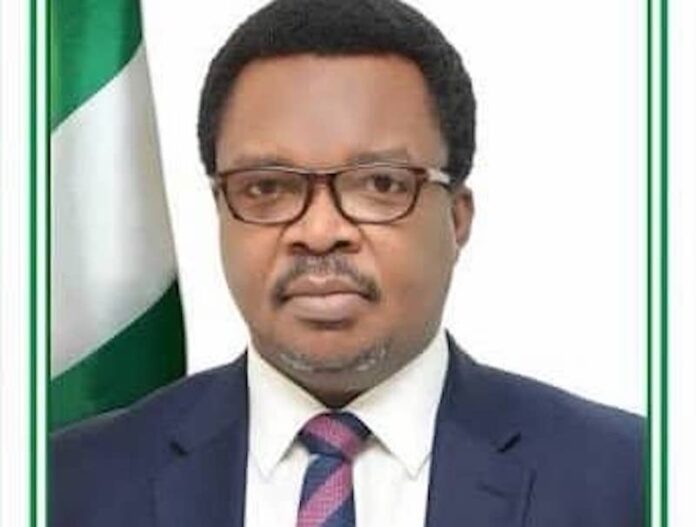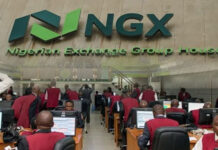Mr. Chiedu Ugbo is the Managing Director and Chief Executive Officer of the Niger Delta Power Holding Company (NDPHC), implementer of the National Integrated Power Projects (NIPPs). In this interview with Peter Uzoho, on the sidelines of the recently held Agbara Business Roundtable in Ogun State, Ugbo speaks on the benefits and opportunities inherent in the activation of bilateral power sales contracts between the company and end-users. Excerpts
What is the Agbara business roundtable and the bilateral power project for the industrial clusters all about?
Essentially, we’re here to assure or reassure the businesses in Agbara that times are changing. We have a power revolution coming. We are providing end-to-end solutions. In the National Integrated Power Projects (NIPP) as you know, which my company implements, we have about 4000 megawatts capacity approximately, constructed. A lot of this is stranded in the power plants because of a myriad of issues.
But what we have decided to do, leveraging on the evolving regulatory framework in the Nigerian electricity market is to say okay, we have this customers who can take this electricity, what are their challenges?
Let us come in terms of networks’ challenges, clear the last mile, ensure that they get this electricity, and there’s no better place than industrial clusters like Agbara industrial area where they can take, as you heard from the Vice President, up to 200 megawatts, and we’re prepared to serve that.
So essentially, what we’re doing is partner with the transmission company and our private sector partners: EnerixOne, Millwater, Eko Disco, to ensure that we work together, clear this network challenges and flow the electricity to these industrial customers.
If they pay anywhere less than N100 per kilowatt hour, which compares to about N300 to N250 they pay for a self generation now, I think it’s a win-win for everyone. So that’s what we are trying to do.
The vice president has given a marching order for a timeline when this can be achieved. Can you speak to this?
Thanks for that question. It’s important to also make the point that NDPHC, though a generation company, we’ve been intervening in transmission projects and distribution projects. So we are good. We understand what is required to deliver these projects.
Before now, we were doing projects all over the country. But the board has said, look, target this project to clusters where you can see the results immediately. So yes, we can deliver and we have said what it will take, the long list items we can get and then the time will work tirelessly to ensure that we meet the deadline given to us by the chairman of our board.
When will you get this same eligible customer arrangement to residents now that you are experimenting with the industrial clusters? And will this guarantee a 24-hour power supply?
We are working to ensure that we have availability of at least 95 per cent of the time.
What’s the timeline for this project?
It’s six months, aggressively.
What’s the volume of power that will be dedicated to this project?
Yes, we have started. We started this eligible customer drive, bilateral drive and you know, we had to market the companies. Some of them were sceptical, saying government thing again? But we are serious. And that is why the vice president has come to say, ‘this company is under me. This administration has a different thinking. Take me for my word, we would deliver’.
Before now, we had signed up to 40 something companies, totalling about 50 megawatts, and I’m sure with the interest shown today, we should be able to do up to 200 megawatts and that’s our target. So we want to power all the industries in this industrial cluster.
Do you have any technical partners providing some solutions?
So, EnerixOne is our partner in terms of financial partners. We are a generation company. There are investments that have to be made in transmission expansion, substation expansion, adding more transformers, MVA capacity transformers and there are investments that have to be made in terms of the distribution lines -33KV lines, the substations and all that.
This requires money. We cannot fund it alone. They are actually the ones who marketed the customers and they decided to say, ‘NDPHC, we trust you, we can take your power because you have the biggest portfolio in Nigeria. Of course, we will not fail. So, I will partner with you, we will make the investment together and then, of course, we serve the customers together.’
Can you give a number as to the value of the required investments?
So, it’s not quite a lot, but the engineering survey has to be done, the technical work has been done, but they will have to do the bill of quantities and then bring it back to us.
How many generation plants does NDPHC have currently and what is the total installed capacity and call-up to the grid?
NDPHC has 10 power plants. Eight are already on the grid, two are still under construction. Of these eight on the grid, we have approximately 4000mw installed capacity. But if you look now, because of the challenges in the sector, our call-up to the grid is between 500 and 600mw or 700mw at best.
Transmission has told us they can give us up to 975mw, but the difference is from the gas challenge and a number of factors. But if you have the customers who can take this electricity, who can pay, then we should be able to deliver and do well more than that, well above that. So, the grid is constrained.
There are lots of distribution losses, collection inefficiencies, tariff shortfalls, a number of these factors will be eliminated because the cost associated with these factors are being borne by the Nigerian Electricity Bulk Trading Company and it sits on the federal government’s balance sheet.
But if you contract directly with the end-users, the commercial arrangement is not the federal government’s business. We supply them electricity and they pay us and we must make sure that we collect. We will put systems in place that will allow us to collect our tariffs. We will put systems in place that will enable us to give them security of supply. So, it’s security of supply, security of payment.
When can we have this kind of arrangement in residential areas where direct bilateral contract between the power supplier and the end-users will be implemented?
As a matter of fact, we started with Eko Disco. Before, we’ve been supplying Eko Disco 100mw, that doesn’t go through NBET. It’s a direct bilateral between us and Eko Disco. That improved the supply of Eko Disco to Lagos area.
But not just that. Now, we are discussing directly with the Eko Disco and Lekki Residents Association. And we are targeting those group of customers, we are targeting other clusters around the country.
Recently, we signed the framework agreement with Ibadan Disco, that relates more with industrial clusters as well. But as many residential areas they are able to bring, we will work together with them to ensure that these losses we talk about, the technical losses, which has to do with the poles and wires; the commercial losses, which has to do with some level of technology to ensure that there is no power theft or the power theft is reduced, and of course, the collection losses, which is tied directly to metering, that these things are eliminated, it’s not a rocket science. It’s just making the right investment and ensuring that it’s a network business.
I generate electricity in my power plant, there is a transmission to evacuate it and carry it to the load centre where it’s required -the load centre, the distribution facilities. It’s as simple as that, and that’s what we are trying to do. It’s not rocket science. We have our private partners working with us, we would bring the funding, the businesses will pay for the investments in the business.
Do you think Nigerians will be willing and able to pay for this kind of arrangement?
That’s why we are starting with the industries first. The industries need it. Like I mentioned, if you are paying for self-generation and you are paying somewhere around N350 per kilowatt hour and somebody is coming to offer you N90 and to guarantee 95 per cent supply availability, you will want to go for that. That will reduce your cost, and that will improve your efficiency.
With the liberalisation of power generation, transmission and distribution and signing of the 2023 Electricity Act, what opportunities do these present to NDPHC and other players in the sector?
That’s what we are saying. In the liberalisation, we have the backing of the Lagos State government, we have the backing of the Ogun State government, you saw them here. So they are taking advantage of it. And again, the Act pretty much supports what we have in NDPHC.
The greater investment in NDPHC is by states, 53 per cent, all the states put together. So, for NDPHC, the states have already started doing business and we are trying to now take it to them, the owners of the business and say, look, take ownership, work with us, let us help you light up your state and by so doing, we light up Nigeria.
With all these steps being taken to improve electricity supply to consumers, what kind of environment do you see over the next six months or one year?
I see an environment with improved access to electricity, improved delivery and then, affordable electricity. So, we are pretty much meeting the Sustainable Development Goals (SDG) goals.



















